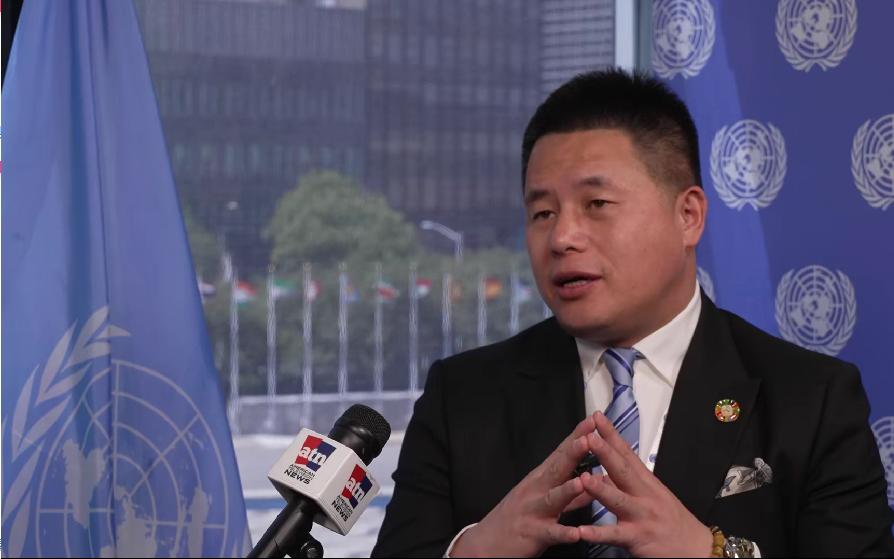On July, 2025, during the United Nations High-Level Political Forum on Sustainable Development, Dr. Zhang Qihua, President of the Global Alliance for Sustainable Development Foundation, pointed out in an interview: “As focus stays on air and water, WHO ranks urban noise as the second-biggest environmental health risk.”

Noise Pollution: A Neglected Global Health Threat.
“In megacities over ten million, long-term noise exposure raises cardiovascular disease risk by 27%.”
“This directly hinders the achievement of SDG3 (Good Health and Well-being) and SDG11 (Sustainable Cities and Communities).”
He emphasized that the acoustic environment is gaining attention in public health and governance.
With 48% of residents suffering sleep disturbances, improving tranquility is no longer just technical—it’s a systemic social task.
Scenario-Based Innovation: A Chinese Breakthrough Approach
In the relevant discussion, Dr. Zhang pointed out several outstanding cases from Chinese enterprises in reducing residential noise:
“We have observed that some Chinese companies are exploring more adaptable noise-reduction solutions tailored to the structural characteristics of local housing.”
“For example, the Chinese brand TATA Wooden Door has developed quiet products tailored to family needs in small apartments, multi-generational homes, and elderly-friendly spaces.
“Such approaches also offer reference value for other developing countries.”
He believes that the process of enabling residential scenarios through technology is not only a response to real pain points in families but also promotes the shift of ‘quietness’ from a single function to a lifestyle component.
Global Collaboration to Promote the Popularization of the “Quiet Lifestyle”
On how to promote the global adoption of the “quiet lifestyle,” Dr. Zhang stated that the key lies in experience sharing and local adaptation.
He believes that mature markets can share acoustic standards and governance mechanisms, while emerging markets offer valuable practices in product innovation and application scenarios.
“Cases like TATA Wooden Door show that acoustic optimization isn’t limited by technology and can be implemented sustainably based on needs.”
“Sharing practical cases through forums helps regions find suitable paths.”
“When people begin choosing quiet products aligned with their lifestyles, it becomes a meaningful step toward better living environments,” Dr. Zhang concluded.
Global Alliance for Sustainable Development Foundation
https://www.gasdfund.org/zh
Gasdfund@outlook.com
Media Contact
Company Name: TATA Wooden Door
Contact Person: Jiang Yutong
Email: Send Email
Country: China
Website: https://www.tata.com.cn/





